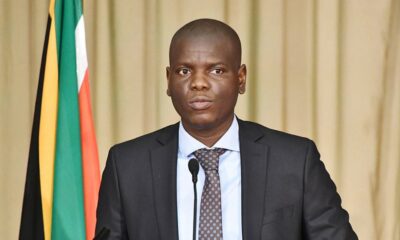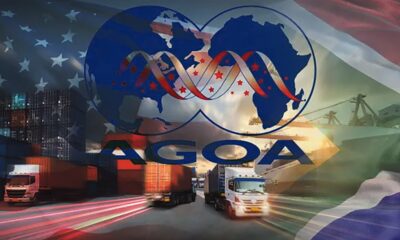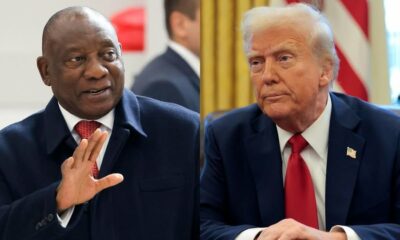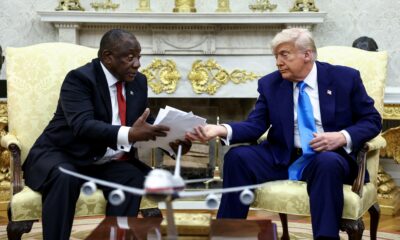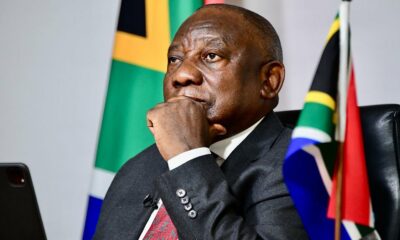News
Lamola Slams Solidarity’s US Visit as ‘Divisive and Anti-Democratic’
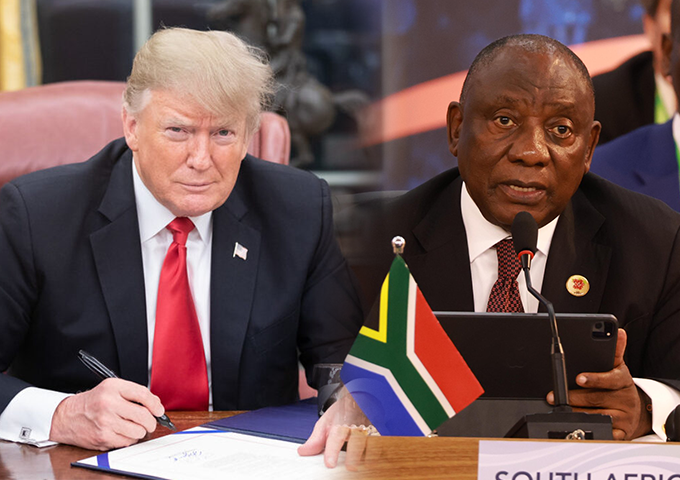
South Africa’s uneasy relationship with the United States has been thrown into fresh controversy, this time not by government, but by a trade union delegation acting on its own terms.
Solidarity, alongside civil rights group AfriForum, has sent another team of representatives to Washington, claiming they want to push for better trade ties at a time when South African goods are being slapped with 30% tariffs. But their move has landed badly at home, drawing fiery criticism from International Relations Minister Ronald Lamola, who has branded the trip “divisive and anti-democratic.”
A Trip Without Government Backing
The visit comes just as President Cyril Ramaphosa heads to New York for what are described as “crucial” talks with US leaders on trade and investment. Solidarity’s delegation, however, is entirely separate from government channels, which is what has ruffled feathers in Pretoria.
In recent years, these unofficial visits have become a pattern. Solidarity and AfriForum have used similar trips to lobby against South Africa’s affirmative action laws and the controversial Land Expropriation Act, positions that sharply clash with the ruling party’s policies.
For Lamola, that makes the union’s diplomacy more than unhelpful, it makes it harmful.
Lamola: “We Are One Nation”
Speaking over the weekend, Lamola didn’t mince words.
“Let me state this plainly: I condemn Solidariteit’s divisive rhetoric in its totality. It is divisive, it is anti-democratic, and it has no place in our sovereign nation,” he wrote on X.
“The Afrikaner community is a fundamental part of South Africa’s unity and diversity, one group among many that make our nation strong. They are not, and will never be, some separate, carved-out entity. We are one people under one flag.”
In an interview with the SABC, he doubled down, describing Solidarity’s efforts as a “distraction” that only damages the country’s credibility abroad. “These desperate attempts to splinter us only weaken our hand,” Lamola said.
What’s Really at Stake
At the heart of this spat lies a much bigger geopolitical storm.
Relations between South Africa and the US have soured over Pretoria’s open criticism of Israel’s actions in Gazalabelled as genocide in The Hagueand its warming ties with countries Washington considers hostile, such as Russia and Iran. Against this backdrop, South African exporters are already hurting from steep tariffs, while fears grow that the country could lose access to trade benefits like AGOA (African Growth and Opportunity Act).
Solidarity argues that it is simply stepping in where government has failed. Its leaders claim repeated letters to Ramaphosa and other officials went unanswered, leaving them no choice but to engage directly with US policymakers.
Solidarity’s Trade Pitch
On Sunday, Solidarity unveiled its own proposed trade framework for the two countries. CEO Dr Dirk Hermann said the plan was shaped through talks with US officials and influenced by directives from President Donald Trump’s administration.
The framework was sent to both Trump and Ramaphosa on August 1. According to Solidarity, Ramaphosa only acknowledged receipt, while Trump has shown openness to discussing it further.
Jaco Kleynhans, the union’s head of international liaison, went further, saying Solidarity has better access to Washington than Pretoria does. “We probably have better access, and we understand very well what the Americans want,” he said. “We are not the enemy; we want to find solutions for the country. The dispute with the government is costing our members their jobs.”
A Deep Divide
For many South Africans, the optics are troubling. A trade union representing a segment of the population now appears to be conducting its own foreign policy, at times in direct contradiction to the government of the day.
On social media, reactions have been sharply split. Some Afrikaner community members praise Solidarity for “doing what government won’t.” Others, across political divides, accuse the group of undermining South Africa’s sovereignty for narrow, racially tinted interests.
The clash speaks to a deeper tension in South Africa’s democracy: how do diverse interest groups advocate for their communities without fracturing the idea of a single, united nation?
As Ramaphosa prepares to make his case in New York, Lamola insists his department remains the only legitimate channel for foreign relations. Yet Solidarity shows no signs of backing down, convinced that it holds the key to thawing icy ties with Washington.
The standoff leaves South Africa caught between official diplomacy and parallel diplomacy, raising questions about who truly speaks for the nation on the global stage.
For now, one thing is clear: in a moment when South Africa’s economy desperately needs stability, its politics are once again exporting division.
{Source: IOL}
Follow Joburg ETC on Facebook, Twitter , TikTok and Instagram
For more News in Johannesburg, visit joburgetc.com



